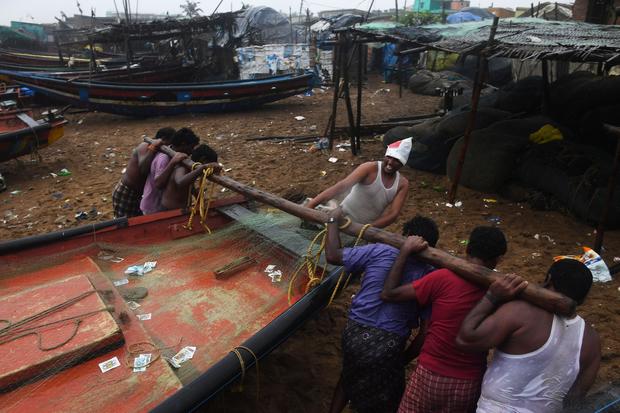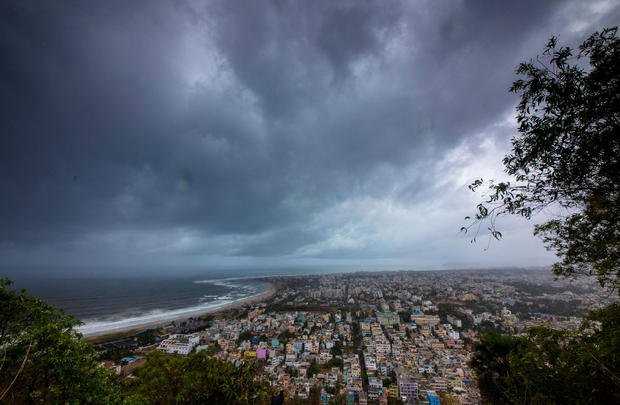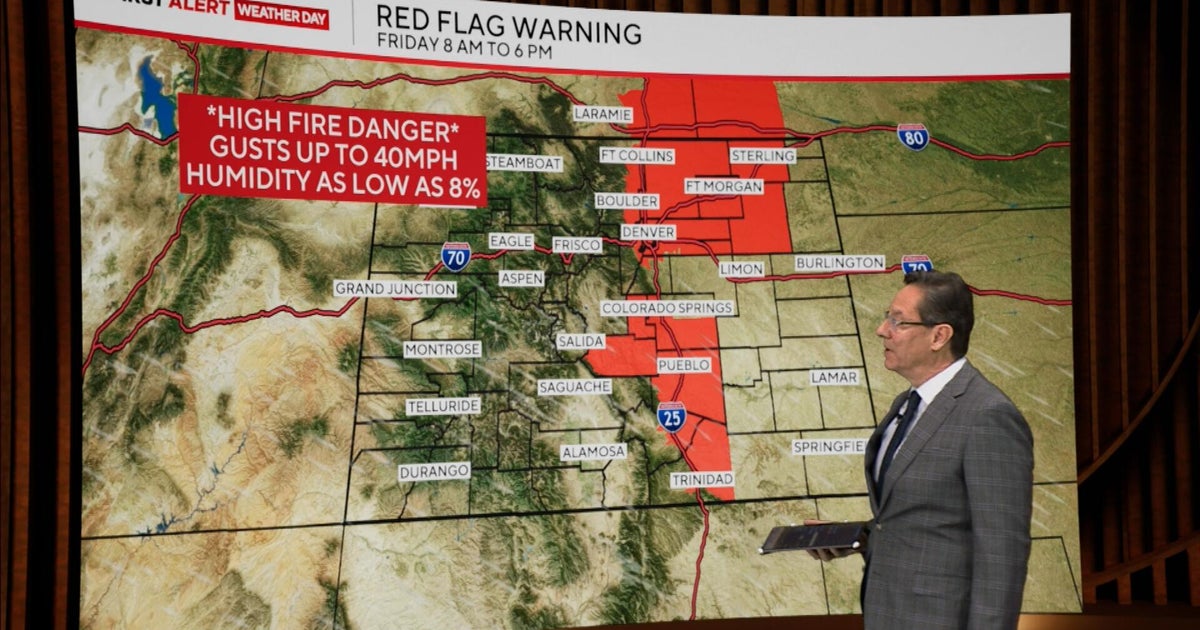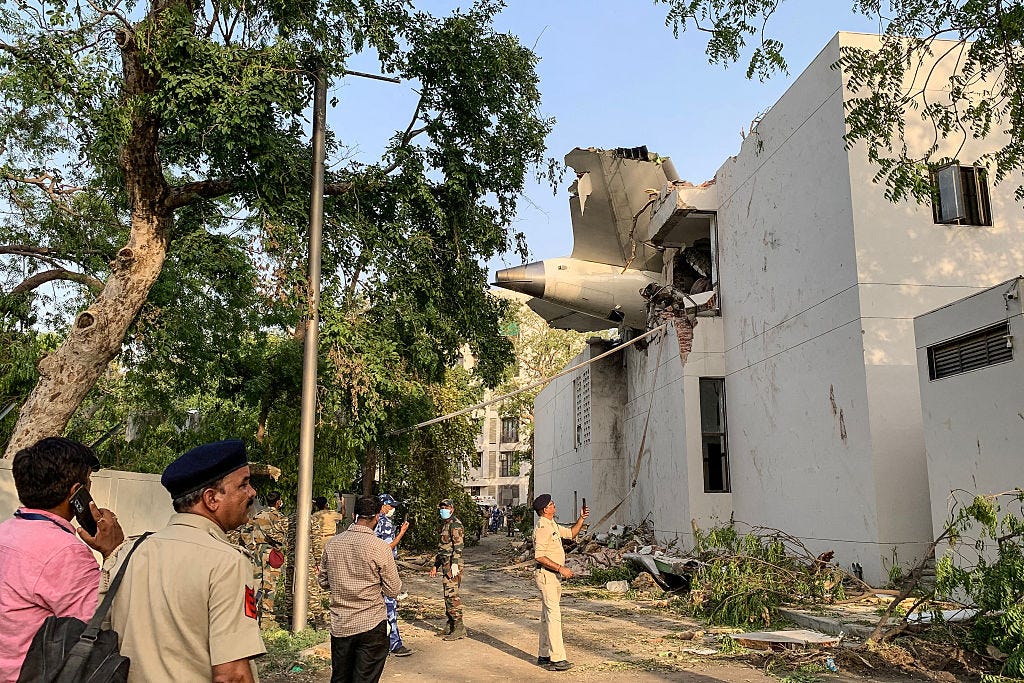Cyclone Fani churns toward India, prompting evacuation of almost 1 million
Nearly 800,000 people in eastern India have been evacuated from the expected path of a major cyclone packing winds up to 125 miles per hour and torrential rains, officials said Thursday. The Indian weather service said Extremely Severe Cyclonic Storm Fani was expected to make landfall on Friday afternoon in Odisha state and barrel northeast on a pathway close to the homes of more than 100 million people.
A state relief department official told AFP that 780,000 people were moved to safer places overnight from at least 13 districts of Odisha, home to some 46 million people, which will bear the brunt of the weather system.
"We are expecting more than a million people to move out of the danger zone in next 12 hours," Bishnupada Sethi, Odisha Special Relief Commissioner, told AFP.
Some 3,000 shelters in schools and government buildings have been set up to accommodate more than a million people. More than 100,000 dry food packets are ready to be dropped if needed, reports said.
On Thursday the storm, which reports said would be the biggest to hit eastern India in nearly two decades, was brewing in the Bay of Bengal about 155 miles offshore and moving slowly but ominously to the west.
CBS News contributing meteorologist Jeff Berardelli says Bay of Bengal cyclones can be the deadliest on the planet because the region is so low-lying, exposing densely-populated coastal areas to extreme storm surges. He notes that there is also hilly terrain in the region, so mudslides are common. Berardelli says cyclones in the area would often kill hundreds of thousands of people in years gone by, but better warning and evacuation systems implemented in the last two decades have cut down dramatically on deaths.
Read more:
The cyclone was expected to pack sustained wind speeds of up to 118 miles per hour, with gusts up to 125 mph -- equivalent in strength to a Category 3 to 4 hurricane.
Fani was expected to make landfall near the Hindu holy town of Puri, a major tourist hotspot attracting millions of Indian and foreign visitors every year.
More than 100 trains were cancelled in in the two days before Thursday, according to a statement by Indian Railways. Three special trains were running from Puri to evacuate pilgrims and tourists.
Authorities have asked tourists to leave coastal areas and avoid unnecessary travel. Special buses were deployed in Puri and other towns to get them out.
Dozens of officials were making announcements on hand-held megaphones across the coastal belt asking residents to leave their homes for safety.
The Indian Navy was also put on alert.
"Our men are urging people to move to safer places and government has set up sufficient shelters to take in those evacuating their homes," said Sethi, the emergency coordinator.
"Heavy rains are expected in all the coastal districts amid fears of flash floods. We are all geared up for the challenge."
Forecasters have predicted "heavy to very heavy" rain on Friday in some places and "extremely heavy" rain the next day, with some areas inundated by up to 8 inches of water. Tides could also surge up to five feet.
India's weather office has warned that the high speed winds can uproot trees, flatten crops and damage homes, power and communication infrastructure.
The neighboring coastal states of Andhra Pradesh, home to 50 million people, and Tamil Nadu, population some 70 million, have also been put on high alert.
Fani will be the fourth such storm to hit India's east coast in three decades. Major weather systems regularly affect eastern and southeast India between April and December.





